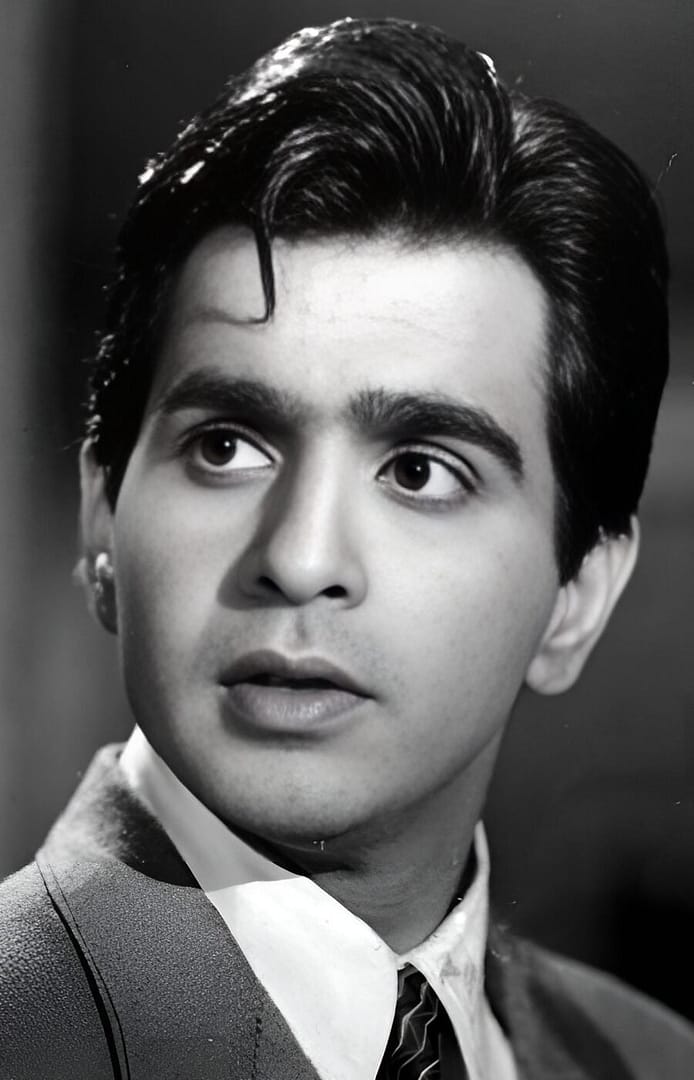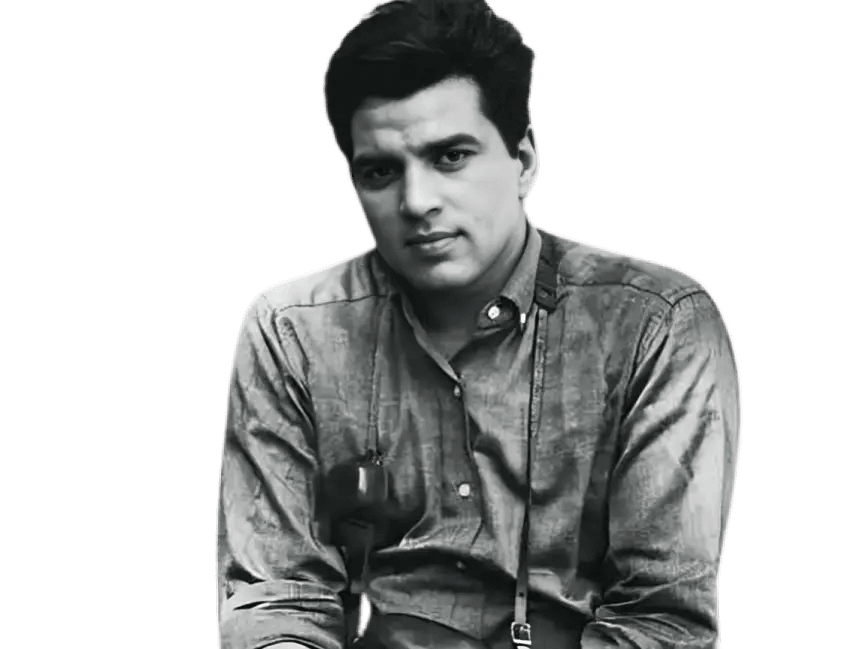Randhir Kapoor Early Life and Family Heritage

Randhir Kapoor, born on February 15, 1947, in Bombay, British India (now Mumbai, India), is an Indian film actor, producer, and director who belongs to the first family of Hindi cinema — the Kapoor family. He is the eldest son of the legendary Raj Kapoor, often hailed as “The Showman of Indian Cinema,” and Krishna Kapoor, who was part of a large and influential film dynasty.
Randhir is the grandson of Prithviraj Kapoor, a pioneer of Indian theatre and cinema. His brothers, Rishi Kapoor and Rajiv Kapoor, were also actors, with Rishi achieving tremendous success as a romantic hero in the 1970s and 1980s. Randhir’s uncles — Shammi Kapoor and Shashi Kapoor — were major stars in their own right. His daughters, Karisma Kapoor and Kareena Kapoor Khan, are among the top Bollywood actresses of their generations.
Growing up in such an illustrious family, Randhir was surrounded by the magic of cinema from an early age. He studied at Sherwood College, Nainital, and later entered the film industry to follow in his family’s footsteps.
Randhir Kapoor Entry into Films: A Promising Start
Randhir Kapoor made his acting debut in 1971 with the film “Kal Aaj Aur Kal”, which was a multi-generational drama bringing together his grandfather Prithviraj Kapoor, father Raj Kapoor, and himself. This film marked the symbolic passing of the torch from one generation of Kapoors to the next and was both a commercial and critical success. It also established Randhir as a leading man in Bollywood.
“Kal Aaj Aur Kal” was not just a film for Randhir; it was a personal milestone. He directed and acted in it, showcasing his talents both in front of and behind the camera. This early foray into directing demonstrated his strong creative instincts and commitment to cinema as a craft.
Randhir Kapoor Peak Acting Career in the 1970s
Throughout the 1970s, Randhir Kapoor enjoyed a steady career as a popular romantic hero. He starred in numerous successful films, often portraying characters that resonated with the youth of that time. Some of his notable films during this period include:
- “Jawani Diwani” (1972) – A musical romantic film with catchy songs that became youth anthems.
- “Raampur Ka Lakshman” (1972) – A drama that showcased his versatility.
- “Hamrahi” (1974) – Where his performance was praised for its depth.
- “Haath Ki Safai” (1974) – A successful action-drama that co-starred Vinod Khanna.
- “Ponga Pandit” (1975) – A light-hearted comedy that reflected his knack for comic timing.
Randhir was often cast in romantic, soft-hearted roles, in line with the preferences of the time. His screen presence was marked by a boyish charm, expressive eyes, and a natural ability to emote.
In the mid to late ’70s, he appeared in films such as “Dharam Karam” (1975) — a film directed by Raj Kapoor — and “Kasme Vaade” (1978) alongside Amitabh Bachchan. Although he was consistently working, the competition from emerging stars like Amitabh Bachchan gradually pushed Randhir to the sidelines in the commercial race.
Decline and Shift to Direction and Production
By the early 1980s, Randhir Kapoor’s career as a leading man began to wane. The change in audience preferences toward action-oriented cinema and a new generation of stars made it harder for romantic heroes of the previous decade to sustain their hold.
Rather than resisting the shift, Randhir adapted. He gradually transitioned into direction and production. One of his most significant contributions behind the camera was the film “Henna” (1991).
Henna (1991): A Resounding Success
Originally conceptualized and started by Raj Kapoor, “Henna” was a cross-border love story between an Indian man and a Pakistani woman. After Raj Kapoor’s death in 1988, Randhir took over the film and saw it to completion. The movie starred Rishi Kapoor and Zeba Bakhtiar, and was a major commercial and critical success.
“Henna” was praised for its message of peace and love between India and Pakistan, its haunting music composed by Ravindra Jain, and its lush cinematography. It was India’s official entry for the Academy Award for Best Foreign Language Film that year and remains one of Randhir Kapoor’s most enduring contributions as a filmmaker.
Later Appearances and Semi-Retirement
After the 1990s, Randhir Kapoor took a backseat from acting. He appeared sporadically in character roles in films like:
- “Housefull” (2010) and “Housefull 2” (2012) – In supporting comic roles.
- “Super Nani” (2014) – Alongside Rekha, playing a patriarchal figure.
- “Armaan” (2003) – A drama where he had a brief role.
His focus remained primarily on supporting his family’s ventures, mentoring the next generation of Kapoors, and preserving the legacy of RK Studios — the iconic film studio founded by his father, Raj Kapoor.
However, RK Studios suffered a major setback in 2017 due to a fire, and in 2018, the Kapoor family announced the sale of the property due to its unviability in the modern era. The decision was emotional but necessary, marking the end of an era in Indian cinema.
Personal Life
Randhir Kapoor married actress Babita Shivdasani in 1971, after falling in love during their early film careers. Babita, who starred in popular films like “Farz” and “Kismat,” eventually gave up her acting career after marriage, as was the norm in many film families at the time.
The couple has two daughters:
- Karisma Kapoor (born 1974) – One of the leading actresses of the 1990s and early 2000s.
- Kareena Kapoor Khan (born 1980) – A top actress known for her versatility, with a successful career spanning over two decades.
Randhir and Babita had a long separation starting in the 1980s, primarily due to differences concerning their daughters’ careers. Babita wanted Karisma and Kareena to become actresses, while Randhir was initially reluctant. However, the couple never legally divorced and maintained cordial relations. In later years, Randhir expressed great pride in his daughters’ achievements and credited Babita for raising them well.
A Beloved Father and Grandfather
Randhir Kapoor has often been seen as a protective and loving father. Despite his traditional views, he eventually came to accept and champion his daughters’ careers in cinema. He has also been a supportive grandfather to Jeh and Taimur, the sons of Kareena Kapoor and actor Saif Ali Khan.
He frequently appears in public events with his family and is known for his jovial nature, quick wit, and deep attachment to the Kapoor legacy.
Legacy and Contributions
Though Randhir Kapoor may not have reached the heights of superstardom like some of his family members, his contributions to Indian cinema are substantial and enduring.
Key Aspects of His Legacy:
- Multifaceted Talent – Actor, director, and producer, Randhir excelled in all areas of filmmaking.
- Bridge Between Generations – As the son of Raj Kapoor and the father of Karisma and Kareena, he served as a link between two golden eras of Hindi cinema.
- Champion of RK Studios – He upheld the vision and values of RK Studios long after his father’s passing.
- Promoter of Cross-Border Peace through Films – “Henna” remains a cultural and cinematic milestone that sought to foster Indo-Pakistani harmony.
His own filmography, while not as vast as others, contains some of the most memorable hits of the 1970s, and his directorial work in “Henna” ensures him a place in the annals of Indian cinema.
Conclusion
Randhir Kapoor’s life is a tapestry woven with the threads of tradition, creativity, family legacy, and adaptation. While he may not have chased stardom with the same ferocity as some of his contemporaries, his choices reflected a deeper commitment to quality cinema and family values.
In many ways, he exemplifies the transition of Hindi cinema from the grand melodramas of the 1960s and 70s to the more personal, narrative-driven films of the 1990s and beyond. As the Kapoor family continues to shine with newer generations, Randhir Kapoor stands as a proud patriarch — a man who, in his own quiet yet impactful way, helped shape the course of Indian film history.




3 thoughts on “Randhir Kapoor: A Legacy of Bollywood Royalty”